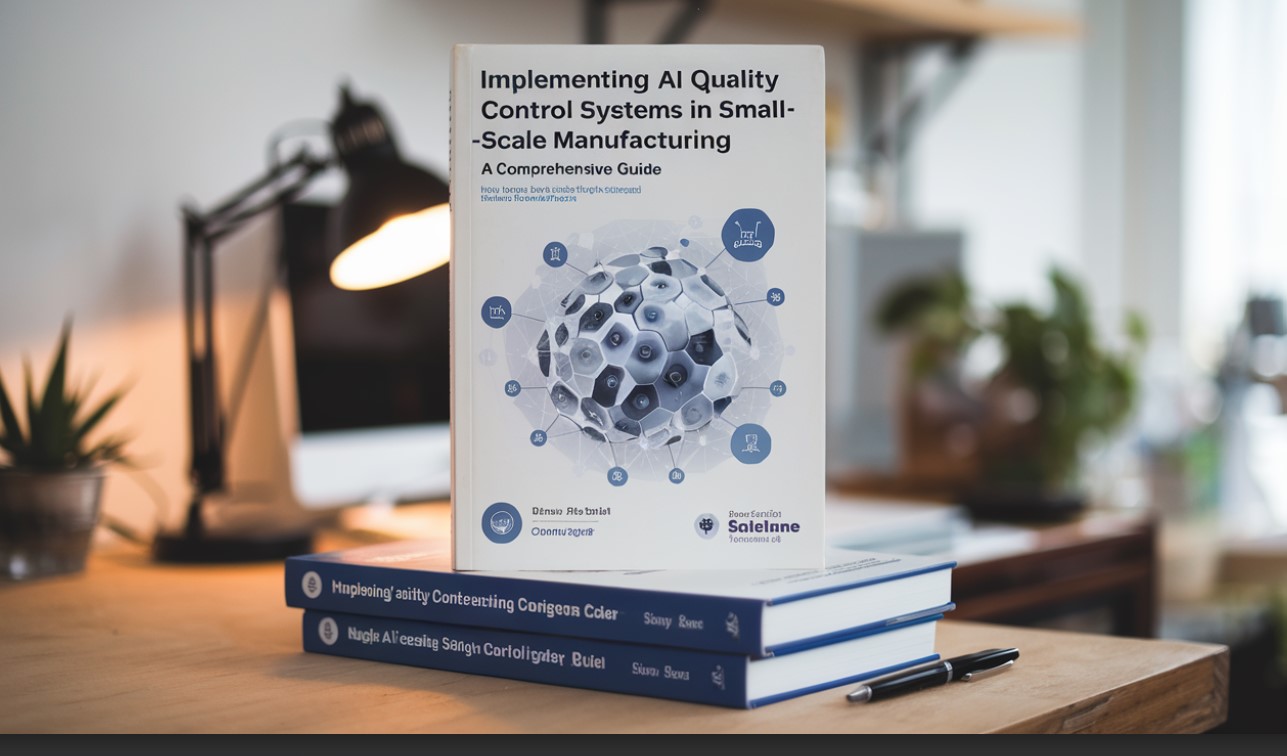
Implementing AI Quality Control Systems in Small-Scale Manufacturing: A Comprehensive Guide : AI-powered maintenance may be the answer to eliminating the mysterious downtimes that plague every manufacturer. With artificial intelligence, you can now anticipate how and when your tools will fail. This means that you can avoid a potentially disastrous and costly shutdown. The future of manufacturing depends not only on being able to produce quickly but on being entirely intelligent as well.
How artificial intelligence is changing the manufacturing scenario
1. Predictive Maintenance with AI
AI is hugely transforming the way manufacturers maintain their equipment. By anticipating when a machine is going to need service, intelligent forecasting systems like AI keep downtime from happening and make things more affordable. Using data from sensors and incorporating environmental factors, like the weather, into its calculations, it predicts future problems. In plain English, it ensures that everything is running smoothly.
2. Quality Control in Real-Time
AI for quality control, which 63% of manufacturing firms had implemented by 2024, improves the speed and precision of quality control beyond traditional methods.
3. Autonomous Manufacturing
AI-powered automation minimizes human intervention in manufacturing processes, ensuring heightened productivity and uniformity. Robotic automation allows for the continuous operation of assembly, welding, packaging, etc. by AI systems which guarantee process consistency and throughput increase.
Collaborative robots work alongside humans to improve efficiency and safety in part-picking, quality inspections, and other exceedingly repetitive jobs. These innovations allow manufacturers to optimize their processes without compromising precision and reliability.
4. Labour Optimization
Labour costs are a huge portion of costs for manufacturers, and still, AI optimizes such functions. AI looks at production demand, employee availability, and historical performance data to build an efficient work schedule that suits business needs. By predicting employee productivity, the right resources will be sent to work at the right time to enhance efficiency on the shop floor.
The challenge in Implementing AI Solutions:
Heavy Cost
The initiation of AI solutions mandates investment on a huge scale on hardware, specialized software, and infrastructure modifications. Such investments can be prohibitive for small and medium-sized manufacturers, thereby delaying their adoption, notwithstanding the long-term benefits of AI.
Data Handling Requirement
High-quality data on which AI is a considerable impediment to data management. Manufacturers need to have programs that help in the collection, storage, and governance of data to ensure that it retains its accuracy and relevance.
Integration with Legacy Systems
Many factories run on old infrastructure that has not been designed with modern AI technology in mind. Retrofitting these systems so they work with AI solutions is often costly and tricky and entails a lot of testing and modification.
Upskilling of Workforce
Time and resource-consuming processes will be training employees to operate AI tools, value data insights, and supervise automated systems.
Data Security and Privacy Concerns
AI systems deal with huge volumes of sensitive operational data and as such are always a target for cyberattacks.
Improving Development With AI-Powered Operations
A Comprehensive Guide AI is redefining manufacturing environments to help satisfy quality, efficiency, and innovative resource usage norms. Predictive maintenance and real-time quality control are two examples of AI-powered technologies that assist manufacturers in reducing expenses and downtime and in their ability to quickly adjust to changing consumer needs. To be competitive in a rapidly evolving global business environment, these technologies are changing the manufacturing landscape.
A well-thought-out approach to AI adoption gives manufacturers revolutionary returns on investment in scalable and flexible solutions while empowering their workforce to fully utilize AI. AI is a big help in clearing the path for smarter operations, sustainable growth, and significant breakthroughs that benefit both customers and enterprises.






